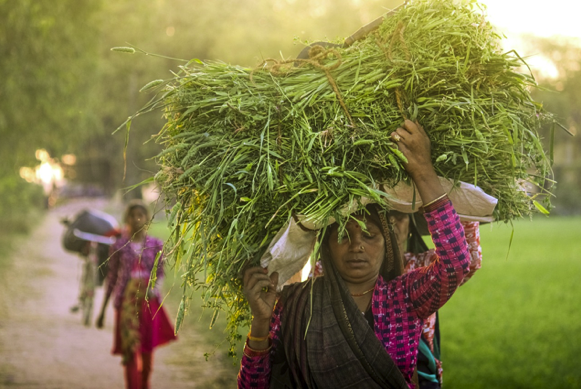The role of women-owned businesses in developing countries

There can be no question that the COVID pandemic has wrought havoc on economies across the globe, with the world’s least developed economies bearing the brunt of the misery. For women in developing countries, though, the economic devastation borne of the outbreak only served to reveal long-standing gender disparities.
For millennia, women have been disproportionately marginalized in the workforce, inhibited from owning property, starting businesses, or fully participating in the economy. Those ancient injustices persist in the modern era in regions around the world, from the richest nations to the poorest.
The reality, however, is that the global gross domestic product (GDP) could increase by trillions of dollars were women to enjoy full participation in their nation’s economies. And that means that, for the world’s developing nations, the secret to true and lasting prosperity may well lie in increasing the country’s support of women-owned businesses.
Women and the Economy
While poverty continues to be a pervasive and persistent problem worldwide, the suffering falls most heavily on the shoulders of the world’s most vulnerable citizens: women and children. Women worldwide are more likely to be engaged in the informal economy, working as unpaid or underpaid caregivers and service providers.
And that means that they do not enjoy the protections of those who are fully, formally employed. Rarely do informal workers receive unemployment or workers’ compensation benefits, retirement or pension accounts, health insurance, or union representation. The work, at best, is often unstable, undesirable, and unjustly compensated.
Long-standing gender stereotypes not only limit the kind of work women do but also their capacity to aspire for something better. Female entrepreneurs, for instance, have been compelled to find alternative sources of funding because of lenders’ reluctance or outright refusal to approve their loan applications.
The lack of access to funding often derives not only from ubiquitous gender biases but also from the more pragmatic ramifications of these biases. Women, particularly those in developing nations, often confront patriarchal systems which limit women’s access to property and, therefore, to collateral. Without appreciable assets to leverage or capitalize on, the opportunity to generate real and sustainable wealth for herself and her family is all but non-existent.
Empowering Women, Powering Economies
As catastrophic as women’s disenfranchisement from the national and global economies has been for women and their families, it has also been destructive for developing countries. Women’s access to employment and, in particular, to entrepreneurship, is strongly linked to the overall health and wealth of the country.
As women’s socioeconomic status increases, so, too, do levels of education, population health, and economic productivity across the nation as a whole. For this reason, policymakers, government officials, business leaders, and investors worldwide are increasingly prioritizing women’s education, employment, and entrepreneurship.
Promoting Entrepreneurial Reach
As the upheavals of the pandemic so amply demonstrated, the economy is more interconnected and interdependent than perhaps ever before. This, of course, means that disruptions can have a profound and enduring impact on regions far from the epicenter. A supply chain disruption in one region, for example, can cause work stoppages and layoffs on the other side of the globe.
But there is a positive side to this interdependency, and it’s that female entrepreneurs seeking to grow their businesses can unleash the tremendous power of a truly global market. For instance, female entrepreneurs in the Caribbean are increasingly turning to the European Union, with its massive consumer market and immense wealth.
Organizations such as the Caribbean Export Development Agency are helping female entrepreneurs overcome barriers to financing through the WE=Export program.
Trapping Into the Trades
As important as it can be for female entrepreneurs in developing countries to access the global market, this is by no means the only route to success. Indeed, the trades can be a superb conduit to full employment and sustained wealth. This may even enable women to transform the informal service work they do into a profitable professional enterprise or a long-term career.
Field service work, for instance, frequently involves labor that women already have significant experience in, from gardening and agricultural work to housekeeping and caregiving. Enterprises dedicated to recruiting women into formal field service work can help them transition into the formal economy by turning unpaid or underpaid tasks into a professional, skilled trade.
Reimagining Resilience
The economic challenges of the previous years have given rise to pervasive fears of a global recession. This can be a significant deterrent for aspiring female workers and entrepreneurs, as well as those who might support them.
In developing nations, as has been seen, the risk can be especially great insofar as economic shocks often have the most debilitating impacts on countries that can least afford them. What may contribute to rising prices in wealthy nations may, for example, trigger full-fledged famines in poor ones.
The good news, though, is that female workers and entrepreneurs do not have to fall prey to global economic volatility. It is possible to insulate one’s business against the threat of recession, particularly by engaging in industries that have proven to be resilient in the face of an economic downturn.
Dedicated hobbyists, for example, are likely to continue to pursue their passions no matter the state of the economy, Birdwatchers, for instance, are unlikely to lose their love for birds just because the stock market has hit a slump.
Savvy entrepreneurs can tap into this inveterate interest, offering economical products and services that enable hobbyists to continue doing what they love, even if on a budget. Female entrepreneurs prioritizing resiliency and agility in their business plan are not only more likely to be prepared should a recession strike, but they’re also more likely to secure support.
The Takeaway
Supporting women-owned businesses in developing countries isn’t just an ideal. Women’s full economic participation is essential for the health and prosperity of women, families, nations, and the world.





